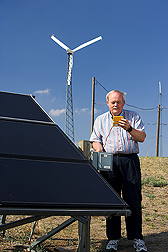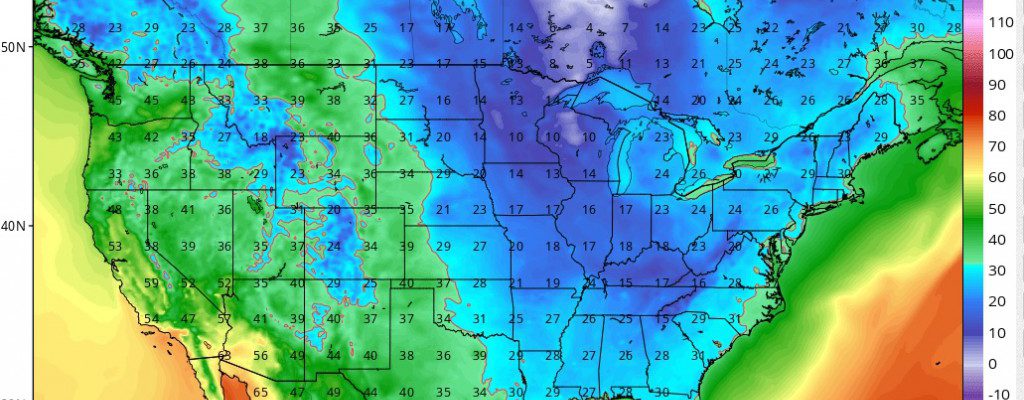Climate and Ag in the news
-

A recent story in Drovers Newsletter described a solar microgrid that was under construction at a large cattle ranch in Hawaii. The power generated by this microgrip will help the ranchers pump water for their livestock as well as power other commercial enterprises near the microgrid. More producers, especially those in remote areas that have…
-

The Georgia Department of Ag put together a heart-wrenching six-page media guide called “Facing the Storm” that contained stories from a number of farmers around Georgia that were affected by Hurricane Michael. I think you will marvel at their stories and share in their sadness as they pick up the pieces of their lives and…
-

Here’s an interesting timelapse graphic based on USGS data which shows the time evolution of rainfall from Hurricane Matthew and the resultant flooding in rivers up the East Coast. You can view it at Reddit here.
-

UPDATE: As of Friday November 9, it now looks like most of Florida and the coastal plains of Georgia, South and North Carolina will probably be spared a frost during this cold air outbreak, although scattered areas could still see something. Follow your local National Weather Service forecast for the latest information. I’ve been watching…
-

This year’s Southeastern Hay Contest winner is from Flatwoods Farms in Murrayville, Georgia, as announced at the Sunbelt Ag Expo on October 16. The hay sample they provided to the contest was one of the highest scored since the contest began 14 years ago, according to Brad Haire in the Southeast Farm Press here. This…
-

Since rain is in the forecast, I thought you might be interested in this story from EarthSky about what we call “petrichor”, which is basically the musky, earthy odor we smell when it starts raining. It is not the rain itself that has an odor, but the moisture releases chemicals from the soil that combine…
-

A new study published recently in the journal Nature indicates that the ocean is absorbing heat and getting warmer at a much quicker rate than previously estimated. The study indicates that it could be gaining 60% more energy each year than previously documented. This could mean that global climate models are underestimating how much warming…